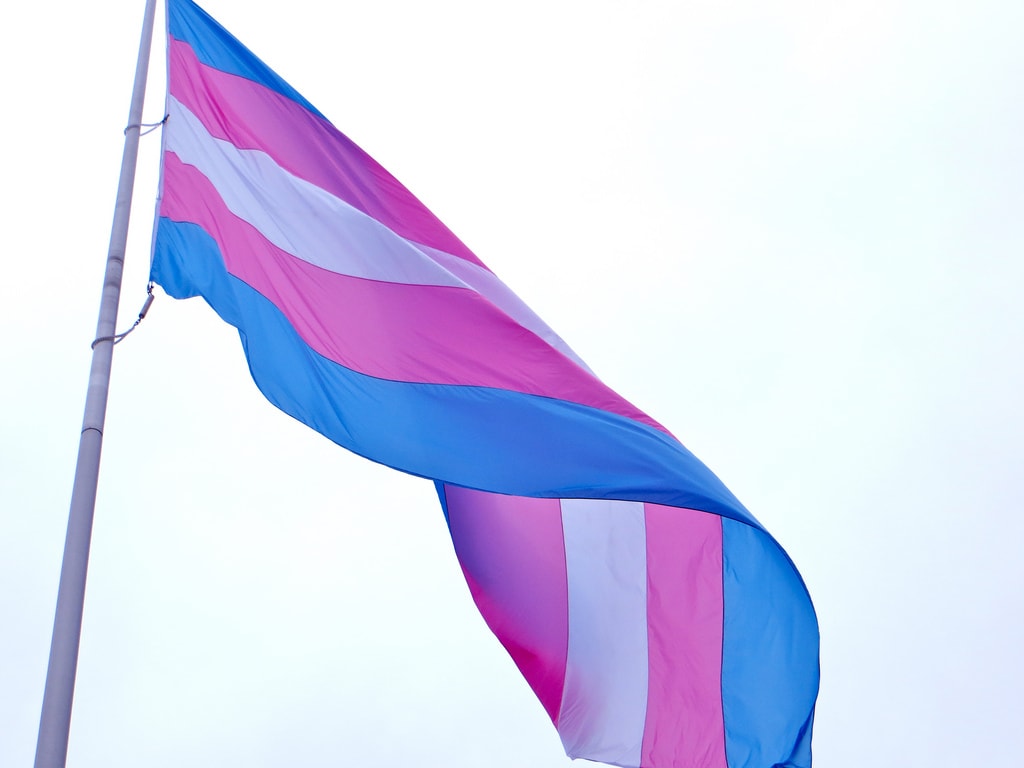Life as a Trans Woman
Being transgender comes with its challenges, but I also find it a rewarding experience that brings with it a strong sense of community and belonging.

Everyone fits in somewhere, and it happens that I fit in with people who identify in similar ways to me (as transgender or non-binary for instance). It isn't easy being out as transgender, it can get tough at times with us having fewer rights than many would think in modern day Britain and with the casual and everyday transphobia that is so often experienced by many. To make this post somewhat easier to understand, I'm going to split it up into two parts. The first part will be focusing on the rights that we have currently under UK law and the rights that are yet to be won. Then the second part will focus on everyday transphobia that is experienced by my community.
Transgender Rights in the United Kingdom:
Many people believe that we have it all made here in the UK, with transgender rights being world leading. And whilst we don't exactly have things tough compared to some places, there's still a long way to go.
For starters, I feel it's highly important that we introduce a new system of self-identification. This system should replace the current process of having to go to a gender recognition panel to have your gender legally recognised. It's an overly medicalised process that is way more intrusive than it needs to be. It can also be a costly process with no guarantee of having your gender recognised by the Government at the end of it. Ireland's first ever law that recognised transgender people was well and truly world leading, having a process of self-ID from the very beginning that leaves the transgender community feeling respected and validated. The process in Ireland can be described most easily as like applying for a passport or driving licence, with you getting your gender recognition certificate at the end of it. There's no having to prove that you have lived in your gender for x amount of years. There's no automatic suspicion of faking things for a personal gain. It's an all-round more pleasant experience, and this is the direction the UK Government needs to head in and is potentially going to do following a public review into the current gender recognition act.
Following on from what was previously said, the UK Government also needs to recognise non-binary identities by allowing an option on passports and other official documents that acknowledges not everyone is male or female. Other countries do this already by allowing you to have "X" on your passport as opposed to "M" or "F". It's a simple thing to do that again would help many people in feeling validated.
Onto the more positive aspects we have the Equality Act which affords protection to transgender people, but also allows protections for single-sex spaces and allows for the refusal of admittance to people who's proclaimed gender is not legally recognised. This protection has its flaws as it instantly assumes that transgender people may have predatory intentions in single-sex spaces such as women's domestic violence refuge's (instances of which have never been recorded). It goes without saying that transgender people don't transition and go through transphobia and non-acceptance because they want to go into a women's only space and assault somebody. They transition and go through all of this because it is who they are, and that can't be helped. Whilst something needs to be done to reassure the radical feminists who believe we have bad intentions in these spaces, I feel this measure in the Equality Act is not the way to go. The moment we start denying transgender people access to spaces that correspond with their gender is the moment we say that their gender is not valid.
The Equality Act goes a long way towards protecting the LGBT+ community as a whole, as well as other minority groups, from discrimination. But their are flaws with it. For instance, non-binary people are not protected under the act 0 which is something that needs to change. And as mentioned above, it has certain exemptions in which it is okay to discriminate. Discrimination should never be permitted, and this is where the act goes wrong.
Everyday Transphobia:
Transphobia is not as cut and dry as openly discriminating against transgender people or saying hateful things towards them. It can come in many shapes and forms, and it may not always be obvious that you're even doing it. My outlook is that any form of action/speech that makes a transgender person feel uncomfortable can be interpreted as casual transphobia, even if it is not intended to be perceived as such.
Here is a list of things that really grind on me when it comes to everyday transphobia:
Staring at people in the street, this can be perceived as casual transphobia if you stare for a prolonged period and it makes a trans person feel uncomfortable or unsafe.
Laughing when you see a transgender person and pointing at them/looking at them obsessively.
Misgendering someone when it is clear what gender they are trying to be perceived as or when you cannot quite make it out. If you're unsure of someone's pronouns it isn't hard to ask, or just don't use gendered terminology when speaking to them.
I'm going to leave it at these three things as I could honestly go on for hours discussing everything that gets to me, and this post is already getting pretty long, but I feel these points get my thoughts across pretty well.
The best thing I can say about everyday transphobia is that it doesn't always seem inherently transphobic and isn't always intended as such, but actions can have very real consequences for people when it comes to feelings safe in public to be themselves. We aren't harming anyone, so just let us be us and get on with our life.
I've changed so much since I came out as transgender. I've gone from having short hair to having hair that is beyond my shoulders. I've gone from never wearing makeup to wearing it more and more as I improve with its application and get more comfortable with wearing it. I've gone from wearing more boyish clothes to choosing clothes more feminine in their style. I exclusively wear dresses on nights out now and my wardrobe is almost exclusively female (I believe there's like one or two tee's that I just can't throw away).
What I'm trying to say here is that I've changed a lot on the outside, but inside I'm the same person I've always been. There's nothing to be afraid of when it comes to me, I'm just trying to live as my authentic self. It doesn't matter what people think of me, because as long as I do me and what makes me happy—my life will be filled with joy and pleasure.
About the Creator
Hannah Rose Pridgeon
I'm a 21 year old, transgender (she/her), freelance writer and blogger. I study journalism at the University of East London. I love writing about all things life, mental health and politics.






Comments
There are no comments for this story
Be the first to respond and start the conversation.